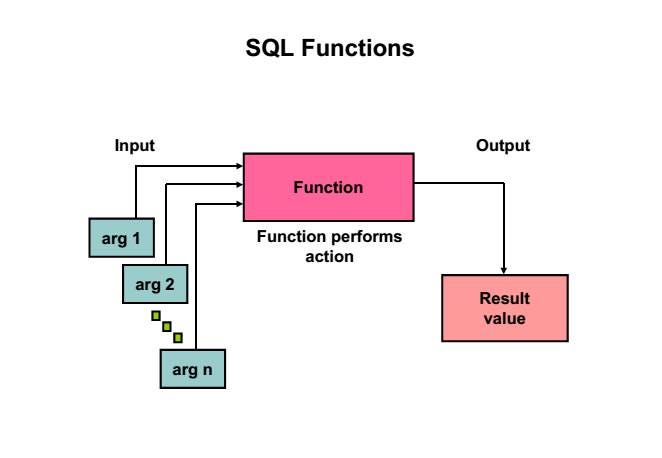⚡ SQL Functions That Save You from Slow Queries! 🧠🚀
⚡ SQL Functions That Save You from Slow Queries! 🧠🚀
Are your SQL queries dragging like a Monday morning? 😩 Don’t worry — you’re not alone. Whether you’re a backend developer, data analyst, or DB admin, optimizing your SQL queries can save you time, bandwidth, and server load.
Here’s a power-packed list of SQL functions that will help you write efficient queries and avoid full-table scans or heavy operations! 🔍💡

1. 🧮 COALESCE() – Handle NULLs Smartly💡 What it does:
Returns the first non-null value in a list.
✅ Example:
SELECT COALESCE(address_line2, address_line1, 'N/A') AS address FROM users;🚀 Best Use Case:
Use it to avoid NULL-related conditional logic and simplify WHERE/SELECT statements, reducing complexity and execution time.
2. 🗃️ EXISTS() – Fast Existence Checks💡 What it does:
Efficiently checks if a subquery returns any rows.
✅ Example:
SELECT name FROM customers c
WHERE EXISTS (
SELECT 1 FROM orders o WHERE o.customer_id = c.id
);🚀 Best Use Case:
Faster than IN() or JOIN for presence checks in large datasets.
3. 🧩 CASE – Smart Conditional Logic💡 What it does:
Acts like IF-ELSE inside SQL.
✅ Example:
SELECT
name,
CASE
WHEN age < 18 THEN 'Minor'
WHEN age >= 18 THEN 'Adult'
END AS category
FROM users;🚀 Best Use Case:
Avoids multiple queries or UNION for logic branching.
4. 🧮SUM()withGROUP BY– Fast Aggregations
💡 What it does:
Calculates total values efficiently.
✅ Example:
SELECT department_id, SUM(salary) AS total_salary
FROM employees
GROUP BY department_id;🚀 Best Use Case:
Optimize reports or dashboards where aggregation over categories is needed.
5. 🔍INDEX()+WHERE– Use Index-Friendly Functions
💡 What it does:
Avoid index-miss by not wrapping indexed columns in functions like LOWER(), CAST() etc.
❌ Bad:
SELECT * FROM users WHERE LOWER(email) = 'test@example.com';✅ Good:
-- Create case-insensitive column at insert
SELECT * FROM users WHERE email_ci = 'test@example.com';🚀 Best Use Case:
Design queries to use indexes properly. Avoid wrapping indexed columns in functions.
6. 🪄LIMIT+ORDER BY– Fast Top-N Results
💡 What it does:
Returns only a subset of sorted results.
✅ Example:
SELECT name, score FROM players
ORDER BY score DESC
LIMIT 10;🚀 Best Use Case:
Leaderboard? Latest updates? Use this combo for super-fast pagination and filtering.
7. 🔗 STRING_AGG() – Join Strings Without Loops💡 What it does:
Concatenates string values from rows in one field.
✅ Example:
SELECT department_id, STRING_AGG(employee_name, ', ') AS employees
FROM employees
GROUP BY department_id;🚀 Best Use Case:
Replace manual concatenation in app layer. Fast, simple, clean!
8. 🧠 DISTINCT ON (PostgreSQL) – Unique Row per Group💡 What it does:
Returns first row per unique column combination.
✅ Example:
SELECT DISTINCT ON (user_id) *
FROM logins
ORDER BY user_id, login_time DESC;🚀 Best Use Case:
Quickly get latest record per user, without slow JOIN + MAX() tricks.
9. ⏱️ DATE_TRUNC() – Time-Based Aggregation💡 What it does:
Rounds timestamps to desired precision (day, month, year).
✅ Example:
SELECT DATE_TRUNC('month', created_at) AS month, COUNT(*)
FROM orders
GROUP BY month;🚀 Best Use Case:
Ideal for time-series dashboards or monthly/weekly summaries.
10. 🧊 WINDOW FUNCTIONS – Analytics Without Joins💡 What it does:
Performs calculations across a set of rows related to the current row.
✅ Example:
SELECT
name,
salary,
RANK() OVER (PARTITION BY department ORDER BY salary DESC) AS dept_rank
FROM employees;🚀 Best Use Case:
Calculate rankings, running totals, moving averages, etc., without extra subqueries.
⚠️ BONUS Tips to Avoid Slowness
🛠️ Use EXPLAIN ANALYZE to check query plans
📦 Batch large inserts using transactions
📈 Maintain proper indexes and analyze them regularly
🧼 Avoid SELECT * – only select necessary columns
📌 Use materialized views for expensive aggregations
🚀 Final Thoughts
SQL isn’t just about fetching data — it’s about doing it efficiently! These functions help you avoid slow queries, prevent resource hogging, and scale your database smartly. Mastering them = level up your backend or data engineering game! 💪💻
Comments
Post a Comment